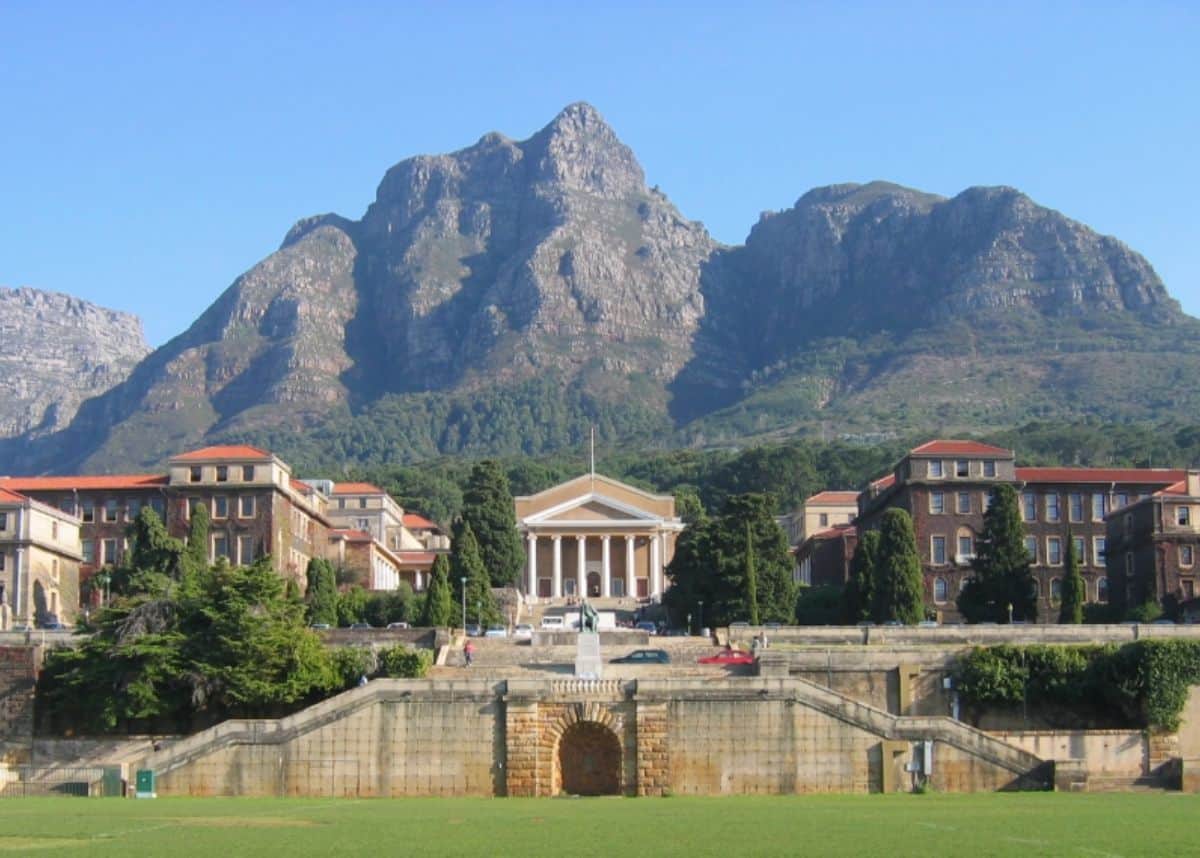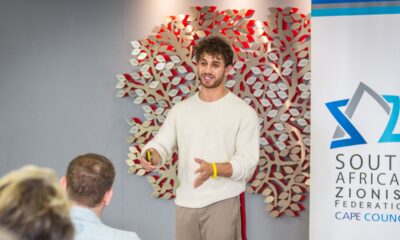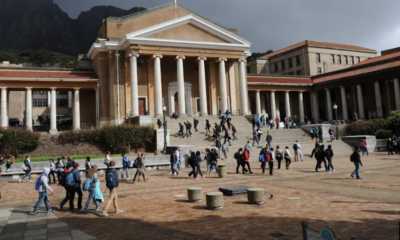
Lifestyle

UCT has become ‘University of Capitulation’, says professor
The chaos, vandalism, and destruction that reigned at the University of Cape Town (UCT) from 2015 to 2017 may feel like a distant memory to some, but it was just the beginning of this renowned institution’s fall from grace.
So says Professor David Benatar, whose new book tracks the toxic environment and corrosive forces that he says have led to the university’s deterioration as a place of higher learning.
Titled The Fall of the University of Cape Town: Africa’s leading university in decline, the book raises the alarm about the shocking saga of what transpired at the institution, where thousands of Jewish South Africans have received an education. Benatar is a philosophy professor at UCT and has written the book in his personal capacity.
He says he was motivated to write the book because “the University of Cape Town has become a deeply toxic place, especially for those who question or challenge the intolerant ideology pandered to and peddled by the institution. This has led to the decline of the university, and portends further deterioration. It’s important that these developments not be hidden from public view.
“The institution has probably passed a tipping point,” he says. “My sense is that the struggle for the soul of UCT has been lost. Sometimes it’s worth persevering with a struggle, but it has been a few years since I thought that was the case at UCT.”
According to Benatar, what he has witnessed is “a saga of lunacy, criminality, pandering, and identity politics which have granted endless latitude in the bullying and abuse of others”.
He says the decline began in 2015, with the Rhodes Must Fall protest that resulted in the offending statue’s removal within a month, and which spawned similar protests abroad. Emboldened by their local success, the protestors issued new and ever-increasing demands later that year and then again in 2016 and 2017.
He records how their methods became criminal – including intimidation, assault, and arson, and says the university’s leadership capitulated to this behaviour, which fostered a broader and now pervasive toxic environment within the institution. These developments offer important lessons for universities around the world that are yielding to the forces of a faux “progressivism”, Benatar says. But his message isn’t one of hope – he believes the institution cannot be saved from itself.
Asked if he could share any personal experiences that made him feel like UCT wasn’t the same place it once was, he says, “There are too many to relate here, but I do recount some of them in the book. My own experiences, however, aren’t the focus of the book. I have sought to give an account of the pervasive toxicity of the institutional environment. Many people are coping by keeping their heads down.”
Is UCT still a safe space for Jewish students? “It depends on what one means by a ‘safe space’,” he says. “I don’t think that there’s any special physical threat to Jews at UCT. If, by contrast, one understands ‘safe space’ as the ‘woke’ do, then it should be said that the dominant view at UCT [which isn’t necessarily the majority view] is hostile to Israel and to those Jews and others who aren’t willing to demonise Israel.
“I don’t think anybody is entitled to be shielded from opinions they don’t like,” he says. “Thus, the problem isn’t that Jews [and some others] are unshielded. Instead, the problem is that those on the regressive left demand to be – and to a significant degree are – shielded from views that they don’t like, while simultaneously persecuting those with differing views.”
Benatar devotes a chapter to Political Science Professor Dr Lwazi Lushaba’s lecture in April 2021, in which he said “Hitler committed no crime”. Though Benatar expertly explains why the lecture was problematic, the university remains silent on the issue. It said it would conduct an investigation into Lushaba’s comments, but there hasn’t been a word on this supposed investigation since. The SA Jewish Report has twice asked the university for updates on the alleged investigation, but these inquiries have been ignored.
Asked why it’s important that the South African Jewish community read this book and care about the future of UCT, he says, “This book should be of interest to members of the South African Jewish community both as South Africans and as Jews. The fate of UCT is connected to the fate of the country, with the influence working in both directions. South African Jews may be especially concerned about the anti-Israel bias, even though UCT is far from the only university to have such a bias. The book sometimes also draws on Jewish experience in ways that might not be anticipated.”
Regarding the most challenging part of writing the book, Benatar says, “Although I don’t shy away from controversy if it’s the consequence of expressing unpopular views that need to be expressed, I don’t enjoy it at all. I’m not seeking conflict, but neither am I willing to avoid it by allowing dominant, vicious narratives to be expressed without somebody countering them.”
He knows there may be a backlash. “I hope that the backlash won’t be as bad as the ‘fore-lash’,” he says. “I have already had more than my fair share of being targeted at UCT. I shall respond as and when I need to. I have no doubt that I shall be criticised, including by those who have either not read or not understood what I have said, because of their ideological preconceptions. My arguments are supported by careful reference to the facts, which are methodically documented. I’m not naïve enough to think that truth always wins out, but it will be interesting to see just how detached from reality my critics will be.”
Regarding the timing of the book’s publication, Benatar says he had a lot to write about, and “given the situation at UCT, there’s constantly new material to document. At some point, I had to draw a line and decide to proceed to publication, which is itself a lengthy process. Given this, the particular timing of publication wasn’t planned.” The book is published by Politicsweb Publishing, whose slogan is “fair, but fearless”.
Indeed, Benatar is fearless in his thoughtful and methodical critique. “With fierce reason and uncommon courage, David Benatar systematically cuts through the fashionable arguments of pseudo radicals,” says leading educator Professor Jonathan Jansen, commenting on the text.
“With fact after fact, he shows that the destructive forces … are devouring the entire university,” says author, journalist, and peace activist Benjamin Pogrund.
“I don’t have much hope for the future of UCT,” Benatar says, “but I should say that the institution still has some excellent scholars and even more decent people. Most of them, however, are cowering. That’s an indication of the severe social cost of speaking out. But we should also recognise that we still live in a substantially free society and that the cost of speaking out is typically not as great as it is in so many other societies. It remains to be seen how long that will last.”
- The Fall of the University of Cape Town: Africa’s leading university in decline is available on Amazon as an eBook. It’s not yet available in South Africa, but will be within the next two weeks.











yitzchak
November 19, 2021 at 11:43 am
No wonder max price fled….now in uk
Max Price
December 9, 2021 at 5:56 pm
Rumours of my departure are grossly exaggerated (apologies to Mark Twain). I am here in Cape Town and proud of what I and my executive achieved at UCT. Max Price